Keeping on top of the accounts and dealing with accountants may not be a retailer’s favourite job, but it’s a crucial one. When the demise of Palmer & Harvey left many retailers forced to find alternative supplies in a hurry without a credit deal, it brought home the benefit of knowing exactly the state of your affairs.
Chris Roberts, director of Franchise Finance Ltd, who helps c-stores with finance, business planning and training, says: “You need to have visibility of your finances at regular intervals to keep on top of them. It is no good to review your finances only at the year end. Having monthly accounts and monitoring carefully selected key performance indicators is crucial to maintaining good financial health. If any problems arise, being reactive in a timely manner could be the difference between taking a little hit, or facing a real and significant issue.”
With a background in accountancy, Romi Mediratta takes keeping on top of the books seriously at the store he runs with wife Arti, Londis Lane End in High Wycombe, Buckinghamshire. “Before I ran the business I was training to be an accountant. Accounting is a very important part of the business, but we retailers don’t always look at it in that respect. We tend to look more at the day-to-day running of the shop, but it if gets out of hand you can be in trouble.”
He ensures he updates his Excel spreadsheets twice a week. “If you leave it then the following week there is just a little bit more to do; it soon builds up. It takes an effort to sit down in front of the system and on average I easily spend an hour each time. It’s finding that one hour in the daily running of your business; it’s hard.”
Chris Taylor, of Taylor’s of Tickhill in Doncaster, looks at his books every week, using a Sage accounting package. “We do cash flow analysis once a week. We have to be businesslike. When it comes to end-of-year audit the accountant can simply log into our Sage accounts and do an audit.”
Checking the figures is also a job Chris takes responsibility for himself. “I do all the checking of accounts myself - I have done for 20 years. It’s either that or pay someone else to do it!”
With six stores to run, Steve Bassett gives his staff the job of updating the accounts system for his chain in the south west of England. “I have multiple spreadsheets which staff complete. Staff fill in these online forms - which are like Google forms - on a daily basis.”
The system is saved to the cloud so there is no paperwork and the data is secure, and Steve says he can keep track of things as he can log in whenever he wants. He’s also got a less-technical failsafe - his father Peter checks through the books religiously once a week.
Chris Roberts points out that hand in hand with “monitoring, monitoring, monitoring”, having a good accountant is vital, and they should be much more than a financial record-keeper.
“Your accountant should be part of your team. They should acquire some industry-related knowledge. They should know the basic benchmark ratios so they can help you identify what is good and not so good about your business. They should also be looking at trends and discussing these with you.”
Roberts says that if your accountant doesn’t show an interest and buy in to your business goals and strategy, then it’s time to find one who does.
At Taylor’s of Tickhill, Chris has used the same accountancy firm for a long time, but feels confident in turning to them when he needs advice. As a Nisa retailer, he sought their advice when deliberating the details of the takeover bid from the Co-op. “We had to call them over the financial implications of the Nisa deal - I wanted to know the implications on capital gains tax. They are the experts to guide you.”
Romi, too, has had the same accountant from day one. “He was recommended by a friend and I have been happy, but recently I have been thinking I need to move on and change, because it comes to a point where you feel there isn’t much being offered in terms of service. Because we’ve grown, we need a little bit more advice.”
Setting up the automatic enrolment pension brought home the fact Romi could be missing out. He explains: “My accountant didn’t offer that service so I had to source that from somewhere else. I believe that an accounting firm should have all that in-house. It was only speaking to other retailers that I have found what accountants can offer.”
Yen-Pei Chen, corporate reporting & tax manager at the Association of Chartered Certified Accountants (ACCA), says accountants should offer a range of services, from setting up book-keeping and business systems, to tax advice and planning, auditing of annual accounts and business tax returns, to payroll, budgeting and cash flow.
Chen advises that retailers seeking an accountant should first and foremost check whether they are qualified and a member of an accredited professional body. “Legally, anyone can call themselves an ‘accountant’ - they are not necessarily trained, qualified or experienced,” he warns.
The ACCA offers a ‘Find an accountant’ tool on its website, www.accaglobal.com, which can help you find accredited firms in your area.
Top tips
Finding an accountant
Yen-Pei Chen, corporate reporting & tax manager at the Association of Chartered Certified Accountants, says retailers should ask prospective accountancy firms these questions:
What are your plans for your business? At the very least, this makes sure they’re not planning to retire or emigrate in the next six months - but, more importantly, they should be able to demonstrate their understanding of business issues. Having a qualified professional who understands exactly what you’re going through as you grow will be invaluable.
How many other clients like me do you have? It’s helpful if your accountant is familiar with the sector. However, if the answer is too great a number, ask how they provide a reliable service to all of them.
How do you do your billing? There’s no right or wrong answer, but if it’s a fixed price monthly charge make sure you both know exactly what’s included and what will be extra. Beware of vague answers like ‘It’s fine; we can sort it later’.
What’s your attitude to tax planning? Paying more tax than you’re required to by law isn’t going to be good for business, but an overly aggressive approach to HMRC comes with significant risks. Try to find an accountant who shares your risk appetite.
What accreditation do you have? If you’re looking for specific advice outside of the standard preparation of accounts and tax returns, you should ask whether they have the correct accreditation for your needs. For instance, in the UK & Ireland, there are additional requirements for audit work.
Top tips
How to keep cash flow in check
Keep a cash flow forecast. Set targets for the next six to 12 months to avoid shortfalls. Take note of any seasonal variations, factor in fixed costs, and include every item.
Stay on top of stock management. Reconcile your stock records when you reconcile your bank account. That way you will never be holding too much stock.
Tighten up on your outgoings. Assess the frequency with which you pay suppliers, tax bills, utilities and so on - is it possible to make terms more flexible? Use your powers of negotiation to strike deals that are favourable to you and your business.
Identify potential cash flow problems in advance by regularly updating your cash flow forecast. Don’t bury your head in the sand and hope an issue will go away. If worried, talk to an accountant, investor or business mentor.
Source: Sage software and services



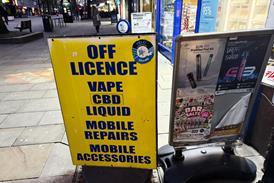










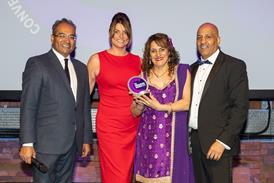






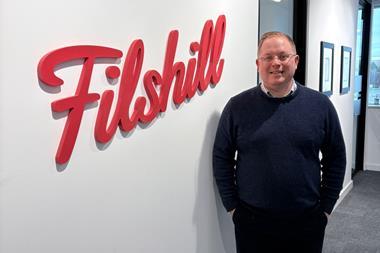
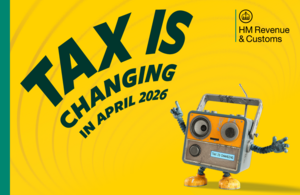

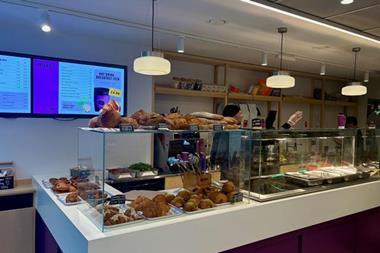








No comments yet